This year marked a continued commitment to locally led solutions that empower farmers and producers to expand their businesses despite economic setbacks, climate shocks and conflict.
Together with our partners, we directly supported more than 798,000 households across 19 countries, working alongside agricultural communities to build farms and market systems that offer reliable incomes, secure sources of food and resilience to climate change.
Below, learn more about our progress in 2023 and some of the key impacts we’ve achieved in collaboration with our global community.
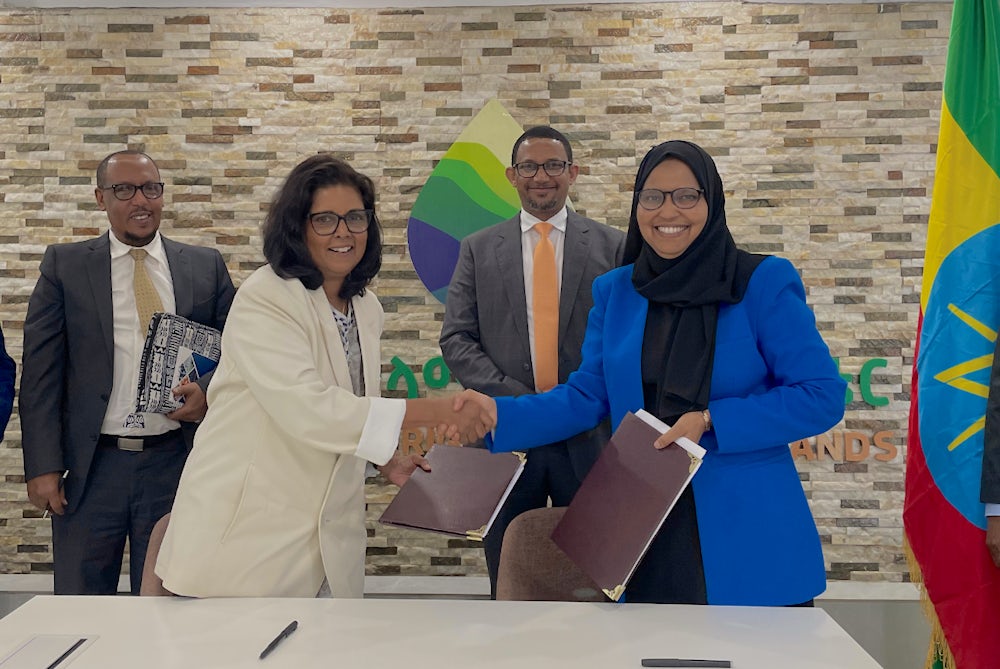
In June 2023, Heifer signed two new Memorandums of Understanding (MOUs) with the Ethiopia Ministry of Agriculture and Ministry of Irrigation and Lowlands, strengthening Heifer’s partnership with the national government to transform the country’s agricultural sector, improve incomes of smallholder farmers and pastoralists, and enhance food security.
Through the agreements, Heifer Ethiopia will develop the National Lowland and Pastoral Program — a development plan for lowland and pastoral Ethiopia — and support commercialization of the livestock production system in pastoral areas through improved market systems, forage production and animal health service delivery. Heifer will also work with both ministries to identify and implement innovations to engage women and youth in agriculture, and improve production, income, access to finance and utilization of technology.
To further foster strong, sustainable, locally led leadership in India, our colleagues supported a five-day government training on Heifer’s 12 Cornerstones for Just and Sustainable Development. The program educated government officials on the concepts of values-based, community-led development and the importance of nurturing social capital. Participants explored the benefits of shared values and principles, and realized how critical strong leadership is to success and the various ways they can make a difference in their respective roles.
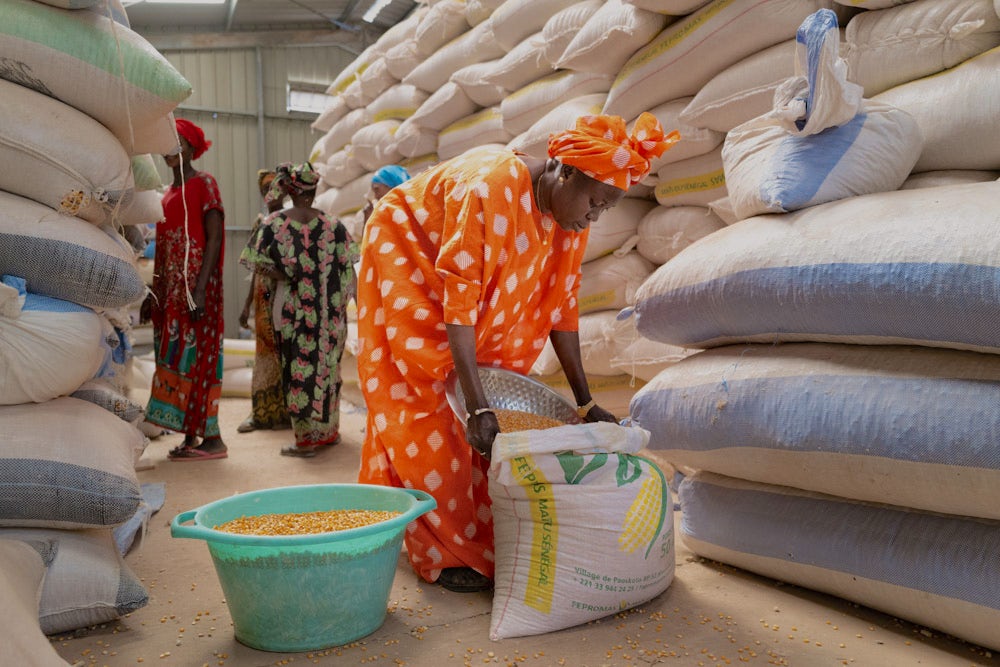
In Senegal, Heifer continued its partnership with the country’s largest maize production and processing farmers’ organization, the Saloum Corn Producers Association, to help its members improve production, adapt to climate change, increase food security and establish profitable businesses.
The association’s membership has grown to more than 2,500 farmers, most of whom are women, who benefit from direct agricultural assistance facilitated by Heifer, including high-quality, short-cycle seeds; climate and weather information; technical and business training; and financing to scale their businesses. The association reached record numbers of product commercialization in 2023, purchasing more than 1.3 million tons of millet, peanuts and maize from its members and local seed firms.
In May 2023, Heifer USA was awarded the 2023 Community Partner Award from the University of Arkansas at Little Rock Department of Applied Communications. The award recognizes Heifer’s commitment to partnering with department faculty and students to promote social responsibility through positive communication.
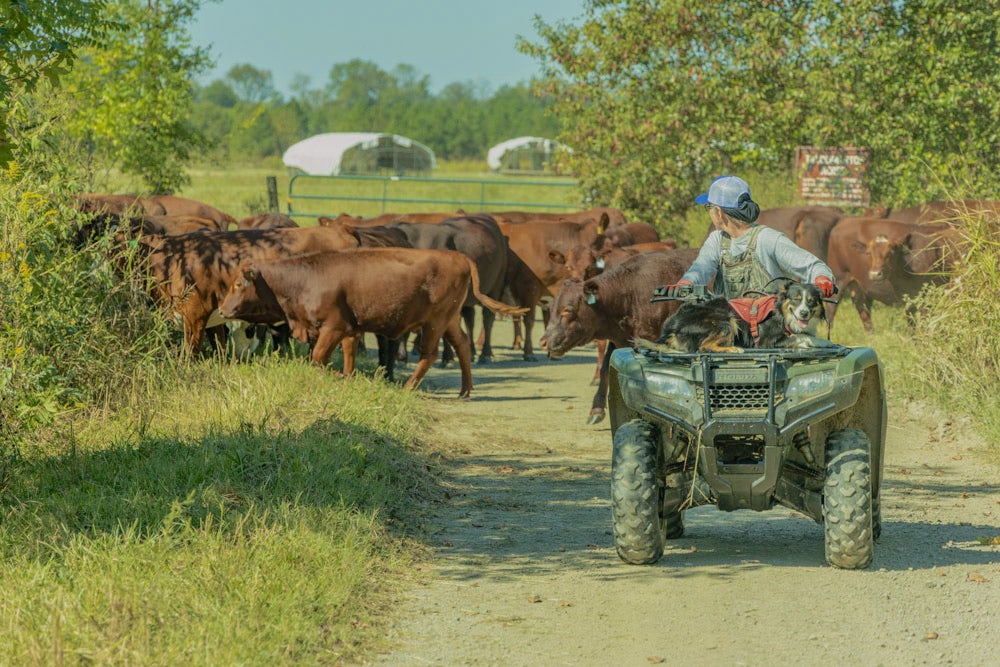
Heifer USA’s working ranch in Perryville, Arkansas — Heifer Ranch Center for Regenerative Agriculture — assists smallholder and rural farmers in adopting science-based, environmentally friendly and climate-smart practices. As a certified Savory Hub for the Savory Institute, a world leader in regenerative practices, the Ranch also serves as a research, education, training and demonstration site and is accredited to conduct Savory’s ecological outcome verification (EOV) testing to monitor land health.
The Ranch held its first two-week Savory Institute Holistic Management course in fiscal year 2023, hosting a variety of guests interested in learning about regenerative agriculture and Heifer USA’s work. Additionally, Heifer Ranch conducted EOV testing on 1,889 acres of land across 11 farms this year, finding nine trending regeneratively.
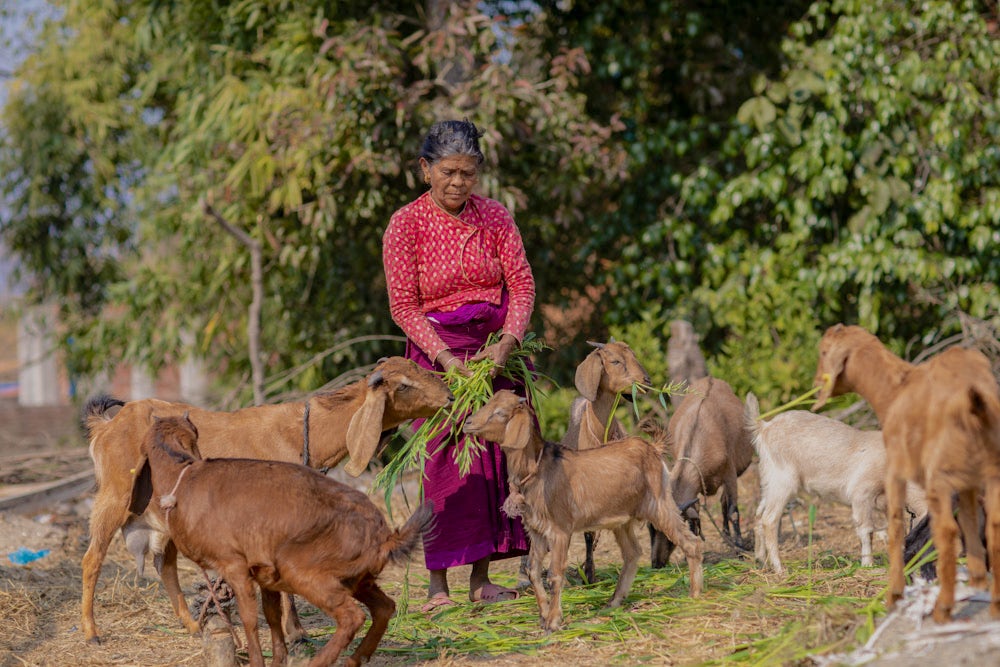
Environmentally friendly agriculture is also paying dividends in Nepal, where Heifer has been working with smallholder farmers to adopt climate-smart practices in goat farming. Research completed in 2023 found farmers who implemented recommended practices reduced their intensity of land use by 80 percent, water use by more than 90 percent and greenhouse gas emissions by 78 percent.
Core to Heifer’s mission is our Cornerstone, Passing on the Gift, which is the act of farmers sharing valuable agricultural assets, such as training, tools and seeds, with others to accelerate progress and development. In FY23, project participants gifted $946,447 in assets to other farmers in their communities.
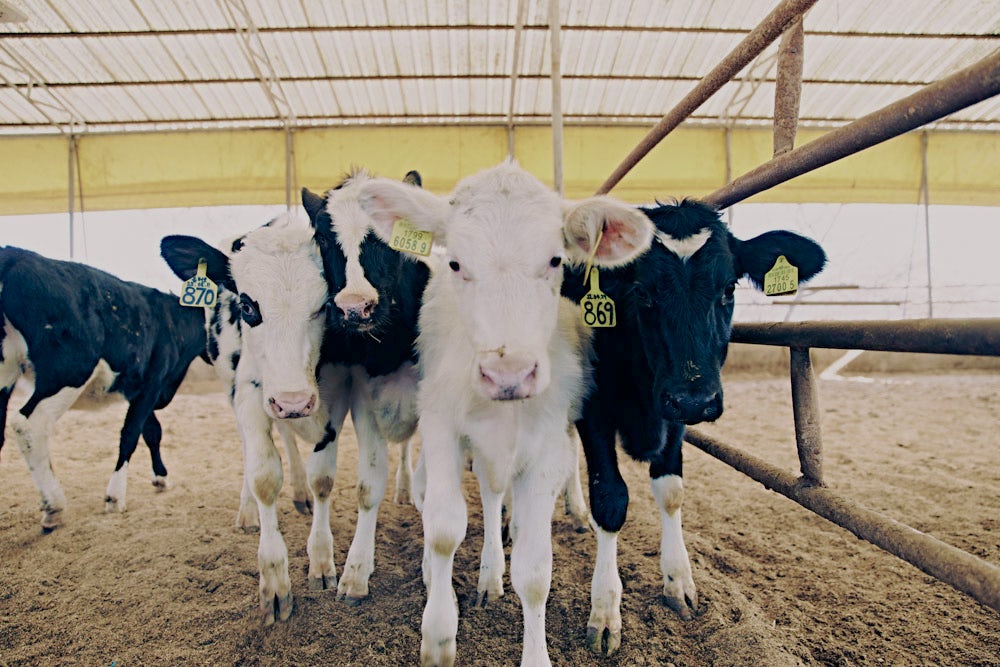
The South Korean government also put this into practice this year by transferring to Nepal 101 Holstein heifers and 20 high-quality breeding bulls donated by Korean dairy farmers. The gift builds on Heifer Nepal’s decadeslong work partnering with farming families to grow their yields and incomes through training on climate-smart practices, strengthening value chains and improving access to veterinary care, animal fodder and other essential resources.
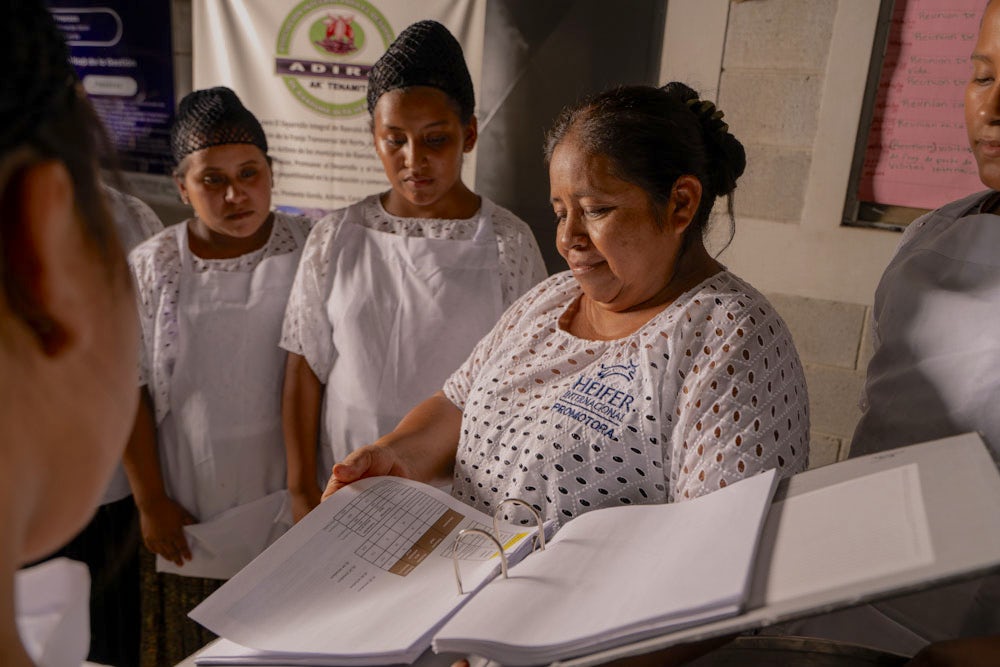
By analyzing our work through the years, we have learned that empowering women is key to strengthening resilience to shocks, ensuring sustainable development and supporting communities to meet their goals and create opportunities for economic growth.
Heifer programs made significant progress in advancing women’s agency in fiscal year 2023, with 63 percent of project households reporting high decision-making power among women.
Additionally, women occupied nearly 60 percent of leadership positions in Heifer-assisted cooperatives in reporting projects.
This year, we continued our efforts partnering with farmers, governments, the private sector and civil agencies to develop farmer-focused value chains and reliable market systems in the countries where we work, recognizing the vital role these systems play in supporting farmers to earn fair wages for their products while improving food security for their communities.
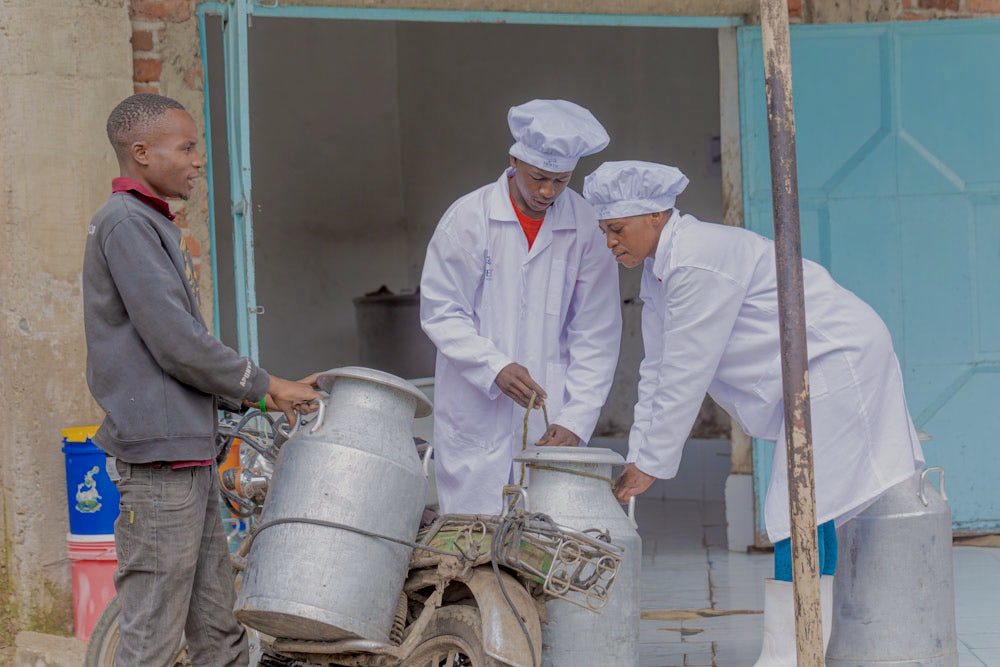
Across Africa, our initiatives have helped farmers increase yields, improve infrastructure and access to equipment, and implement environmentally friendly practices to transform food production and processing. For example, the Tanzania Milk Processing Project improved household incomes for 54,072 smallholder dairy farmers through a network of milk collection sites that reduced waste and connected farmers to markets.
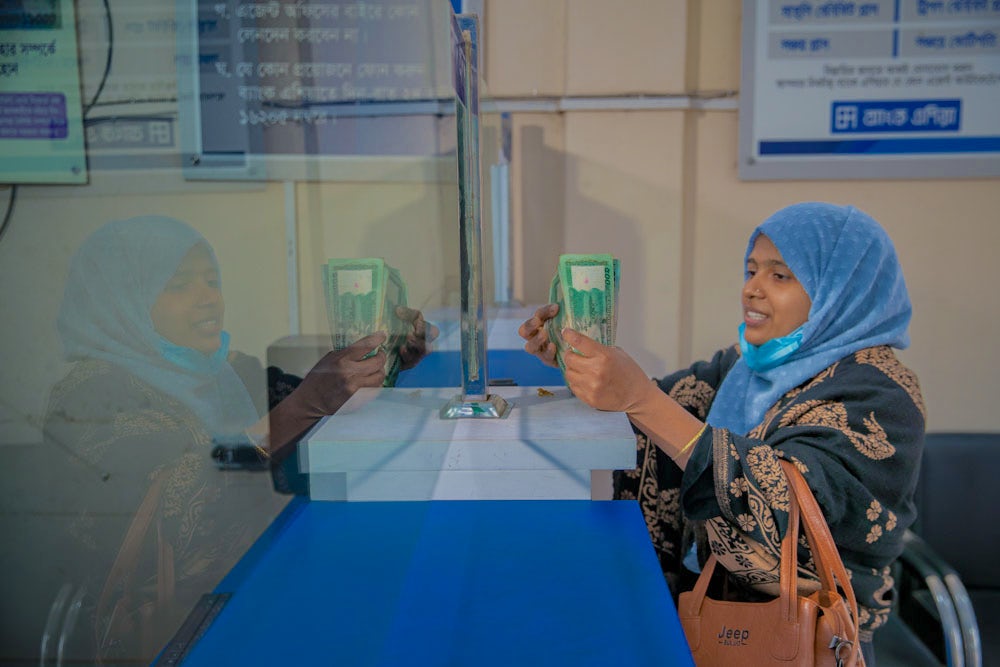
As of early fiscal year 2023, Heifer’s impact investing arm, Heifer Impact Capital (HIC), has committed investments worth more than $17.7 million and deployed $9.9 million in 13 countries worldwide, serving more than 670,000 farmers to date.
Farmer cooperatives with access to capital can design and commercialize products and services at scale, creating jobs and generating local economic opportunities that lead to more inclusive and resilient rural economies.
Access to finance also stimulates the development of small and medium enterprises (SMEs) that can have a long-term, positive economic impact.
Heifer Ecuador celebrated its 30-year anniversary in 2023, marking a long history working with peasant, Indigenous and collector organizations in the development of rural businesses that increase opportunities and income for families.
Heifer Ecuador has strived for triple impact — social, environmental and economic — during this time, with interventions that emphasize agroecological production, work with women and youth, reducing vulnerability to climate change and improving care of ecosystems.
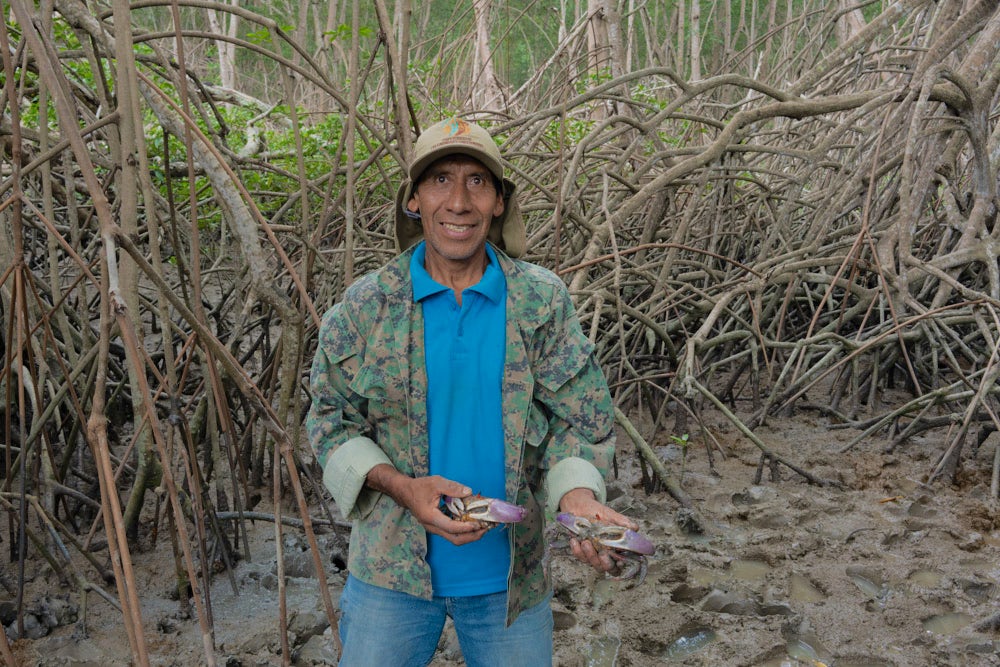
Three decades of this work culminated this year with highlights including a collaboration with the Ministry of Human Rights and Women and the United Nations Development Program in Ecuador to address gender-based discrimination, and the granting of custodial rights to four Heifer-supported agricultural associations to manage part of the biodiverse mangrove forests in the country’s northwestern Esmeraldas Province.
In 2023, Heifer and Mastercard announced an agreement to connect millions of smallholder farmers in sub-Saharan Africa to Mastercard’s Community Pass, a digital platform that makes it safer and easier for farmers to get paid more and faster for their produce. Under the partnership, Heifer and Mastercard will focus on advancing digitalization and financial inclusion among smallholder farmers in Africa.
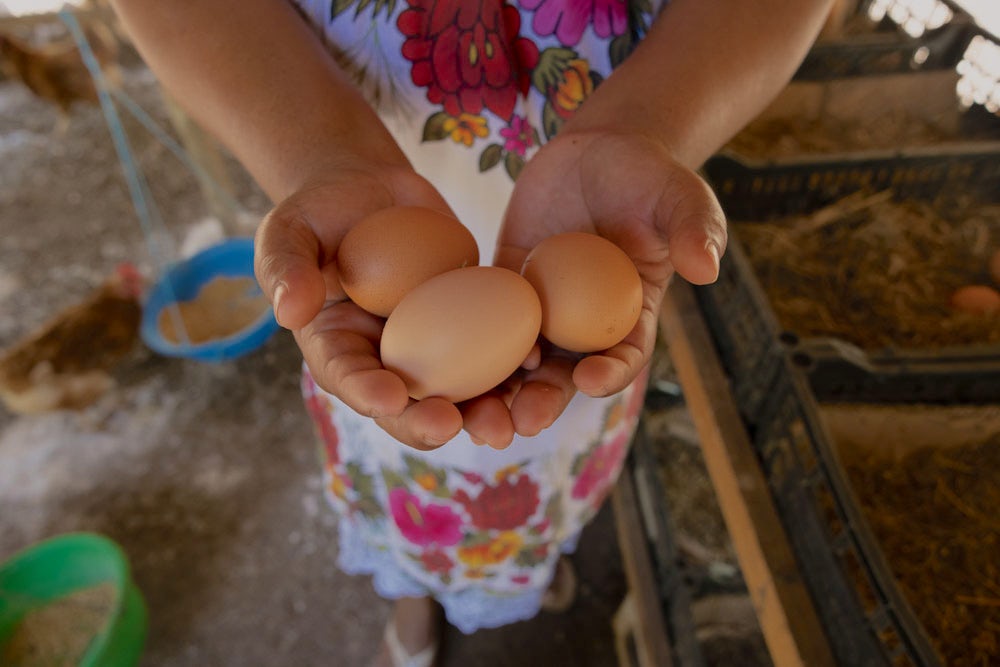
In Mexico, Heifer expanded its network of partnerships in support of Hatching Hope, a global initiative implemented by Cargill and Heifer that aims to help improve economic livelihoods and nutrition by reaching 100 million people by 2030. The program partnered with El Buen Socio, a women-owned Mexican social finance organization, to expand a loan program enabling smallholder poultry farmers to scale up flocks and increase incomes.
El Buen Socio provides financial education and creates an affordable financial product for smallholder poultry producers. These efforts demonstrate an oversized impact: On average, farmers who took the loans had significantly higher annual incomes (up to $4,220) compared to farmers who did not (about $2,620).
